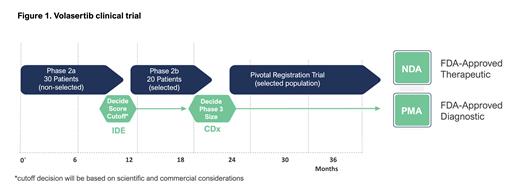Introduction
Acute myeloid leukemia (AML) represents a significant clinical challenge, with complex genetic heterogeneity that underlies the variable patient response to existing treatment modalities. While molecular features and novel therapeutic options offer promising solutions, their effectiveness is often compromised by inter-patient and intra-leukemia variability, coupled with an overall lack of biomarkers that can reliably inform therapeutic benefit. Consequently, these therapies yield clinical responses limited to only a subset of patients.
Predicting a patient's response before initiating therapy optimizes treatment selection by improving the benefit/risk ratio (therapeutic index) and increasing response rates. This helps avoid treating non-responding patients, thereby reducing the occurrence of adverse effects and minimizing the costs associated with ineffective care.
Here, we present an actionable strategy in AML that employs an automated, high-throughput, multi-color flow cytometry-based predictive precision medicine platform (PPMP) offering a genetic biomarker-agnostic approach to identify responders to standard-of-care (SOC) treatments and the polo-like kinase 1 (PLK-1) inhibitor volasertib.
Clinical validation of the PPMP
To date, we have conducted four studies evaluating the PPMP's predictive performance in myelodysplastic syndromes, adult AML, and pediatric AML with several SOC agents. For all studies, pre-induction blood or bone marrow samples were collected from patients then ex vivo treatment responses of individual leukemic cells were assessed using multi-color flow cytometry. The results were validated with the patient's actual clinical response as reported by physicians and indicated high precision-with positive predictive values (PPVs) of 83-100%. These findings help establish a PPMP-based pursuit of investigational therapies to enhance their therapeutic utility in distinct response groups.
Case study: Volasertib
One application of this approach involves the revival of volasertib, a PLK-1 inhibitor with demonstrated activity in AML, that was discontinued by Boehringer Ingelheim (BI) after failing its Phase 3 study. A BI Phase 2 study showed volasertib combined with low-dose cytarabine (V+LDAC) delivered a complete response (CR) + CR with incomplete count recovery (CRi) rate of 31.0% compared to 13.3% from LDAC monotherapy, and higher overall survival (OS). Similarly, in a global Phase 3 study a CR + CRi rate for V+LDAC (27.7% overall response) compared to Placebo+LDAC (17.1%) was reported. However, the Phase 3 study showed a higher frequency of fatal events with V+LDAC, especially in non-responders, resulting in lower median OS. By accurately pinpointing clinical responders, the integration of PPMP aims to identify those patients deriving clinical benefit (CR or CRi) from volasertib.
Clinical trial design
We plan on initiating a Phase 2a single-arm, open-label clinical trial in AML with volasertib in Ven-HMA relapsed or refractory patients, while co-developing PPMP as a companion diagnostic to selectively enroll predicted responders in a follow-up Phase 2b study (Figure 1). Intially, 20-30 patients will be enrolled. Once sufficient responders are achieved and certain performance thresholds of the drug sensitivity platform are met, an additional 20-30 patients will be enrolled, utilizing the companion diagnostic to selectively enroll predicted responders. The primary objectives will be focused on efficacy and safety of intravenous volasertib (possibly in combination with another drug) in patients with relapsed/refractory AML. Secondary objectives will include ex vivo response data collection to optimize the diagnostic parameters for the Phase 2b study. Primary Phase 2a endpoints include AML disease response assessment per pre-specified criteria. Secondary endpoints include an assessment of the diagnostic performance characteristic of Notable's drug sensitivity score in predicting in vivo volasertib clinical response. Specific strategies, including tailored dosing, robust infection control, and carefully selecting drug combination partners are designed to mitigate the adverse events observed in BI's Phase 3 trial and maximize volasertib's therapeutic impact regarding both efficacy and safety.
Disclosures
Wagner:Notable Labs, Inc.: Current Employment, Current equity holder in private company, Current holder of stock options in a privately-held company. Lacher:Notable Labs: Current Employment, Current holder of stock options in a privately-held company. Gu:Notable Labs: Current Employment, Current holder of stock options in a privately-held company. Leonardi:Notable Labs: Current Employment, Current holder of stock options in a privately-held company. Mannis:Abbvie: Consultancy; Stemline: Consultancy; Genentech: Consultancy; BMS/Celgene: Consultancy; Astellas: Consultancy; Macrogenics: Honoraria; Agios: Consultancy.


